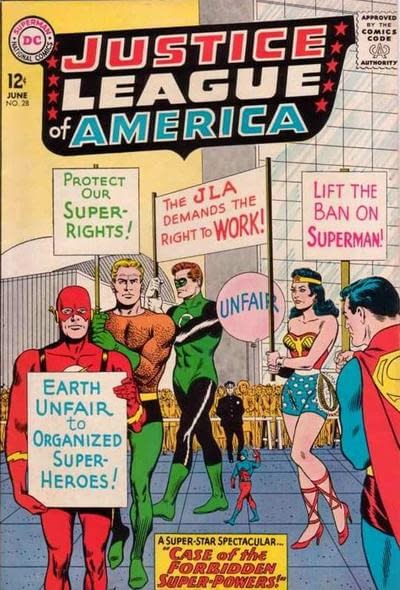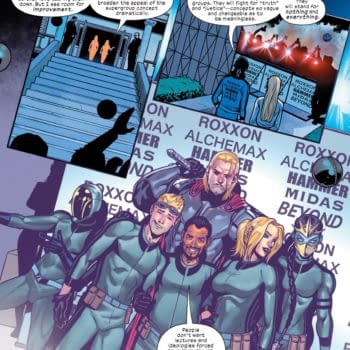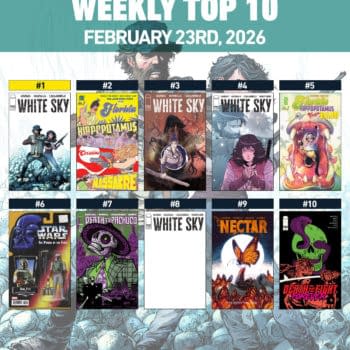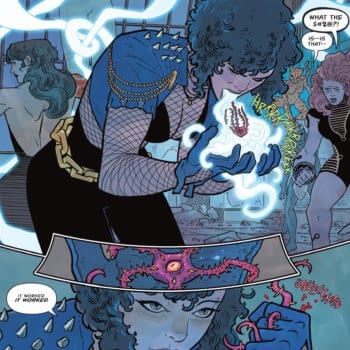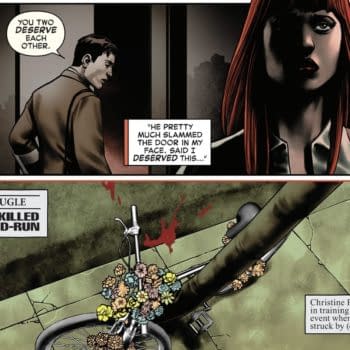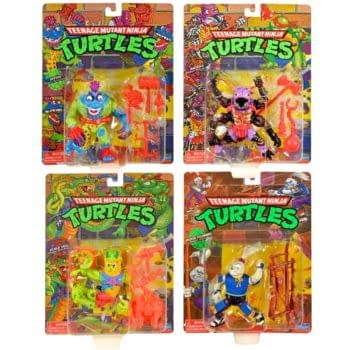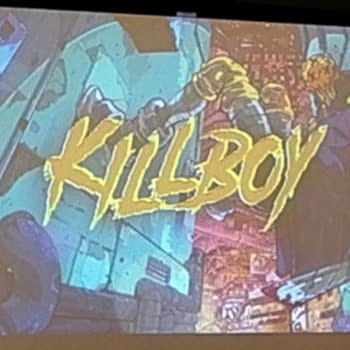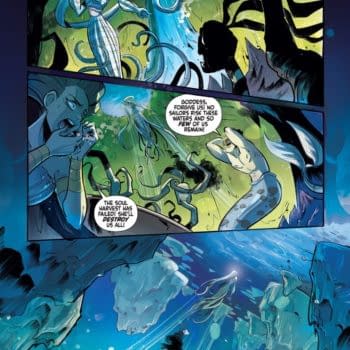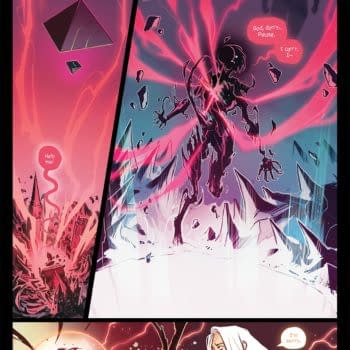Posted in: Comics | Tagged:
After Chelsea Cain and Chuck Wendig – Will Comic Creators Unionize?
Patrick Kindlon writes and shares with Bleeding Cool. You can sign up to his mailing list here.
Ok, so if you're not up on this stuff, two novelists were treated like comic writers and realized it sucks. So they went to social media. Because they're non-comic writers and don't have to take the abuse.
Let's look at it.
I've been critical of out-of-comics hires because I think it sets a dangerous standard. If major publishers can convince the reader that anyone can write comics, they'll hire anyone to write comics. A moonlighting novelist has every right to try his hand at comics. But if he doesn't intend to make it his career, major publishers are getting the milk for free. They'll never buy the cow. They don't need to worry about worker rights, because the closest they have to workers are passionate hobbyists. Vacationing prose writers. Essayists on sabbatical. That's dangerous for us, and the medium. Forget hopes of a union when every comic writer is beaten into believing they can be replaced with a writer from an unrelated field (or, god help us, a wrestler).
Turns out, I may have been wrong. It's possible that non-comic creators will be the only ones with enough self-respect to spotlight the bullshit. They're not scared. And that's power. Maybe it's hobbyists who can say "no." Which is what it takes to unionize. A willingness to refuse.
Buuuuuut, asking tourists to feel as committed as the nationals typically doesn't work. If your passion lies elsewhere and you can make a nice living in that other space… why die on this hill?
So, I dunno. I'm 8 years into my comic career. That's only 1/4 the length some writers have in this game, and I've already seen the call to unionize boom and fizzle at least three times. I'm a bit cynical on the matter.
When I don't know about something, I like to ask someone who does. So, to either give us clarity or add some confusion, I went to the only union organizer in my life, Harrison Watkins. Below are a few questions I had for him, and his very considerate answers. More ideas to chew on; let's go.
—–
My name is Harrison and for the past seven years I have worked as an organizer and researcher for the Laborers' International Union of North America or LiUNA. We are a construction union and part of the AFL-CIO. I work with an organizing team that covers all of New York State. Before that, I did community organizing work centered around jobs, housing, and direct community control of resources in Buffalo, NY.
Here's the situation. We've got an industry that nobody knows how many people are employed in, with a high percentage of freelancers willing to cut each other's throats, that has trained its workers to struggle for 10 years before being able to make even a modest salary. Are some workforces past the point they can unionize? Because I think I found a candidate.
So, admittedly I don't know much at all about the comic industry other than enjoying comics. I did try to read up on it and do a bit of research so I can more fully answer these questions, but I want to say front and center that the beginning of any responsible union push would be to get this research done.
It's my belief that no workforce is past the point of organizing and that the only people who can decide when it's time to organize are the workers themselves. I think what has happened with the wave of digital media platform unionization is instructive. 10 years ago people may have said "that's impossible" and perhaps at the time that was the correct analysis, but here we are with a bunch of brand new unions in media which is inspiring. That doesn't mean it wouldn't be hideously difficult! But these things are almost never easy. I will say labor law in the US is pretty bad and that the use of independent contractors complicates things under the National Labor Relations Act. Freelancers under the current law are not considered part of the "bargaining unit" (what would be considered the union). I think to find the answers to some of these questions, you have to talk to the folks that work directly for DC and Marvel etc.
From a practical perspective, how do unions start? Organizing comic pros is herding cats, and it's a very scared workforce. Do we need the largest voices to come out first, or is it possible to unionize from the (true) bottom up?
Practically speaking, in this industry, I think it would look like some the artists and writers and editors employed by, let's say DC, getting together for coffee or a beer (or just emailing) and talking about how much work sucks because management wants more for less and how maybe it could be different. Unions start because people feel disrespected and feel like they're not being treated with dignity. Obviously everyone would like to be paid more but that rarely motivates anyone to take serious action. Workers talk to each other, find they have common ground, and it can be off to the races from there. The recent wave of wildcat teacher strikes is a great example of this and something very much worth reading about. Usually there is a small group of people who have taken the temperature of their colleagues about how everyone is feeling at work, and one of them will reach out to a union to talk to an organizer about what it might look like to start organizing for a union. I would say that it's extremely helpful to have the largest AND most respected voices come out. There are always people in any industry whom everyone respects even if they're not vocal about organizing. If you get those folks on board, it's immensely helpful.
It is certainly possible to organize from the bottom up. In the construction industry, we do both. Top-down is much, much easier. That's when the contractor, whether through the goodness and purity of their heart or in response to a pressure campaign agrees to use union labor. Bottom up is going through the card-signing election process. A rule of thumb with bottom up campaigns is that you want 80% of the workers in the bargaining unit to sign cards saying they want union representation before filing for an election because, then, all hell breaks lose. With bottom up, you're doing house calls. Meeting workers for breakfast, talking to their families, hearing their stories.
Many comic pros are don't have experience in other unionized fields and don't necessarily know what they should be asking for. What are the basics? What protections are seen as universal?
Contracts vary from union to union, but often what workers say they need are benefits like paid sick time, health care, and planned wage or salary increases. Nearly all employment in the US is considered "at will" which means you can get canned for anything at any time. Often unionization turns that into "just cause" which means per the bargaining agreement workers in the unit, let's say the writers and editors employed by Marvel, have negotiated, you can only be fired for reasons articulated in the agreement. Also, if there are layoffs, unions are critical in negotiating things like severance etc. I think those things make up the foundation of union benefits. My guess would be if that you sent pros a survey it would include sick time, health benefits, and protection against the whims of management.
Some people fear that the comic book marketplace is too weak and unionize would pull companies under. Is that a valid concern or is that echoed in every industry?
This is the line in every industry. I hear it all the time from developers who complain about construction labor costs. "If the construction site is too safe, I can't make money on these luxury condos!". I think it creates a false binary. Clearly some people are making good money here. One of the values of unionizing is the contract negotiation process. Without solidarity, management can use that line on every individual and it's much scarier. How can you fight back unless you're, I don't know, Greg Pak or someone like that? No one wants to lose their job, but it's wild to place the onus of a whole marketplace being successful on workers demanding better treatment instead of a fairer share of capital. What is interesting to me, broadly speaking, is the movie money floating around. It's hard to imagine that Marvel and DC would want the wells for their films to dry up but my ignorance of the industry could be showing here. I understand that the comics companies are separate corporate subsidiaries but they definitely part of that immensely profitable ecosystem. More pointedly, it is hard for me to imagine comic industry workers having codified benefits and salary increases as the iceberg that sinks the Titanic and not any broader market trends or shifts in how we consume our storytelling. The workers should get as much as possible while they can in my opinion. The contract negotiation process is a built in method to respond to market conditions.
For people who are far outside these conversations, could you finish by explaining why unions are important?
We leave in a new gilded age of rampant inequality with a looming climate apocalypse and a rise in white nationalism around the world. Sounds pretty bad!
However, as one organizer I look to for guidance says, "Hope is a discipline." I try to practice it daily. If you want to effect positive change, if you want to fight back effectively, you have to have organized money or organized people and unions are a spectacularly great way to organize people. I mean, about one hundred years ago, we had children in the US working in factories, we had no weekends. Just a few years ago, pundits said that raising the minimum wage to $15/hour was impossible. Turns out it was very possible but only through the collective struggle of workers and organizers. Take a look at the idea of Medicare for All. That has gone from fringe idea to being endorsed by just about every Democratic Presidential nominee. The list goes on. Unions have played key role in all of these fights.
The way I approach my work is that our world can always be better and there is dignity and inherent value in fighting the fight. You have to dream big. Late capitalism can be a grinding and dehumanizing experience but demonstrating solidarity with your brothers and sisters as they fight for better treatment can cut through that. I believe organized labor and unions have a key role to play in the battle for a more humane, just, and livable future. Individual actions matter but we are at our strongest together.


